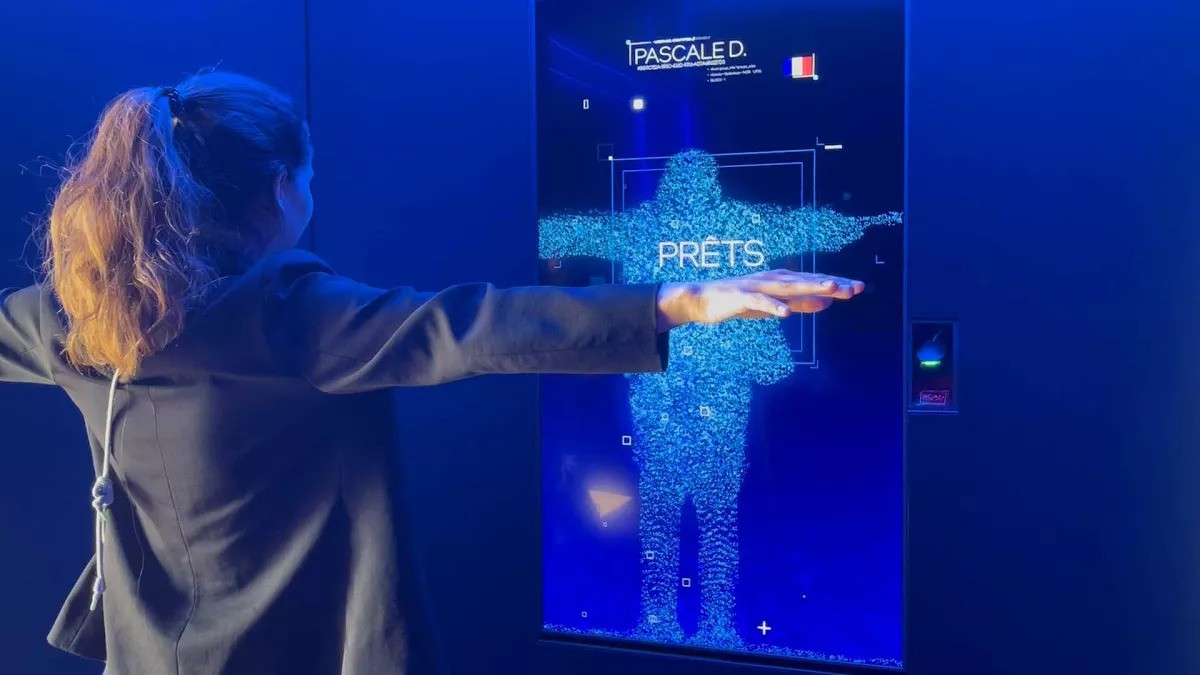A new Ai Tech powered talent spotting system is being tested by Olympic fans in an attempt to identify future gold medal winners. The technology’s creators hope to use a portable version of it to provide cutting-edge sports science to far-flung locations worldwide.
Tacto hears the alarm go off, and he scrambles to swipe the infrared sensors in front of him before some of them abruptly turn blue.
Tomo, his younger brother, can be seen sprinting down a short running track nearby while several cameras follow his every move.
The siblings from Yokohama, Japan, who are four and seven years old, are participating in a set of artificial intelligence (AI) tests that have been specially set up in the vicinity of the Olympic Stadium in Paris.
The system’s objective is to identify future gold medal contenders.
Five tests are used to collect data; these tests involve running, jumping, and grip strength measurements.
After that, this data is analyzed to evaluate an individual’s strength, agility, explosiveness, endurance, and reaction time.
The outcomes are contrasted with information from Olympian and professional athletes.
Head of Intel’s Olympic and Paralympic Program Sarah Vickers says, “We’re using computer vision and historical data, so the average person can compare themselves to elite athletes and see what sport they are most physically aligned to.”
Each test taker is informed, from a list of ten, which sport best fits them after the tests are finished.
Portable AI
As soon as the procedure is finished, Intel claims that all of the information gathered from the participants is erased.
The younger brothers are enjoying themselves while using technology.
I had fun with it, Tacto says. “The part where we had to sprint was my favorite.”
The AI system that is accessible to the public in Paris 2024 has a much more compact and portable equivalent that can be used with the majority of devices that have a simple camera and some processing power.
“You have this opportunity to go into places where you couldn’t go before with just a mobile phone, tablet, or PC,” says Sarah.
Artificial intelligence (AI) technology does not require physical sensors in order to evaluate people’s performance; it can do so by analyzing camera footage.
Recently, the International Olympic Committee brought the system to Senegal, where it was used to evaluate the athletic potential of over a thousand children while touring five different villages.
In collaboration with the National Olympic Committee of Senegal, 48 children were found to have “huge potential” and one child to have “exceptional potential” following a second round of more difficult testing.
Places on sports programs have been offered to them, should they wish to test the limits of their athletic prowess.
It is hoped that the system can be expanded and used to provide opportunities to people in places where bulkier assessment tools would not be able to reach them.
The “holy grail” of sport, according to Prof. John Brewer, a visiting lecturer at the University of Suffolk who has worked on talent identification with England’s Football Association, is identifying potential early in life.
He does, however, caution against using a simplistic system that is only capable of measuring a small number of characteristics for technical sports like basketball or football or those that call for endurance.
“You have to have that aerobic capacity, that oxygen transport capacity, that no filming will ever show if you want to win the marathon or the 10K,” he claims.
Prof. Brewer acknowledges the system’s advantages in evaluating prospective athletes at an early stage.
“That has to be encouraged if they are displaying skill and agility that suggests they can be talented in a particular sport,” he says. “And it can only be beneficial if it is portable and can be used in places where they might not have access to high-tech assessment methods.”
However, it would only be a small portion of a larger system for identifying talent.
Final Results
Little Tacto is back at the Olympic Stadium with his results; it looks like he could be a sprinter.
Though he claims he currently prefers tennis and football, he is still happy.
Hank and Brock are two more seasoned athletes who were both part of their university’s intercollegiate team in the US.
This standard has produced numerous Olympians and can provide top-notch facilities.
“We thought it would be fun because we’re competitive and former athletes,” Hank says.
“Ten to fifteen years ago, when we were swimming, this kind of technology didn’t exist,” says Brock.
And what were the outcomes?
Hank says, “Rugby.”
Brock responds, “I have basketball, but I’ve never played basketball in my life.”
Hank responds, “Well, we never let him back after he played with me once.”
It appears that computers still can’t get things right all the time, even with AI technology.

